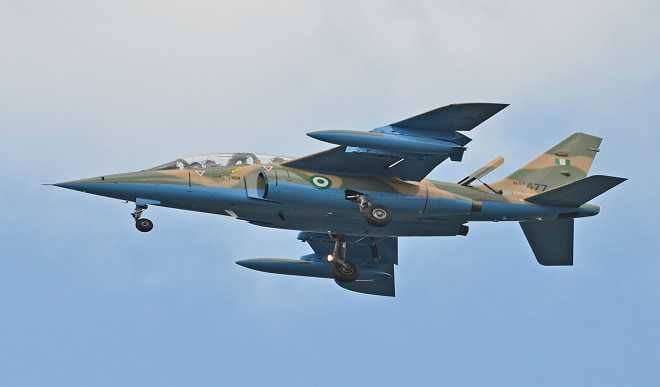For the first time in recent history, a no-fly zone was declared in a Nigerian state as a result of insecurity.
Babagana Monguno, the national security adviser, told reporters on Tuesday that President Muhammadu Buhari declared Zamfara a no-fly zone as part of measures to crush bandits operating in the state.
The NSA said the security agencies have been mandated “to go after all non-state actors, whose activities have been fueling chaos and to “reclaim all areas under the control of bandits, insurgents and kidnappers”.
Checks by TheCable revealed there has been no known declaration of such by any president at least since Nigeria’s current democratic regime.
Advertisement
The only closest similar measure was in January 2017 when the federal government suspended flights in Abuja and diverted them to Kaduna following repair works at Nnamdi Azikiwe International Airport.
So, it is a big deal — especially for a state where bandits have operated with little or no restraint — most recently abducting about 270 schoolchildren.
WHAT DOES A NO-FLY ZONE MEAN?
Advertisement
Also known as a no-flight or air exclusion zone, this refers to a territory where aircraft are forbidden to fly especially during a conflict.
In most cases, it is established by the military to restrict all kinds of aircraft including both manned and unmanned ones such as drones.
This is to enable them to control the air space especially in a territory where the enemy — in this instance bandits — has shown to have a high level of power that threatens combat operations.
Only very few countries have had a no-fly zone enforced in any part of their territory in recent years.
Advertisement
In Libya, for instance, the measure was enforced by the Libyan National Army (LNA) in the country’s south during an offensive in the region in 2018, and another in the country’s west during a similar military action in 2019.
Only four months ago, a no-fly zone was also declared in Armenia and Nagorno-Karabakh following an agreement signed by Armenian, Azerbaijani, and Russian officials to end the military conflict in the troubled Nagorno-Karabakh region.
PEACE AT LAST?
Because this is not a regular move, the Buhari administration’s decision to adopt the approach in Zamfara could only mean one thing: It is finally going all out in military operations against bandits in Zamfara and neighbouring north-west and north-central states.
Advertisement
That would mean peace at last for Zamfara. But there could also be consequences, as experts have argued in the past.
Such direct military intervention can be used to bombard bandits camping in notorious forests that surround most Zamfara and neighbouring states such as Katsina and Sokoto.
Advertisement
It can also be used to pressure them to surrender, knowing that military airstrikes are going to become more rampant especially with the collection of imagery and electronic aerial intelligence.
But the imposition of no-fly zones in conflict zones in the past have involved armed assaults on ground targets in the affected territory, leading to civilian casualties.
Advertisement
This is perhaps the greatest concern for many Nigerians considering that the bandits have often used those held hostage as cover for airstrike.
Another concern is that the lethal strategy might backfire as it is against the posture of the state government which has insisted on using dialogue and not force.
Advertisement
Will the bandits fight back or surrender to the incoming military operations? Nigerians await.
Add a comment







